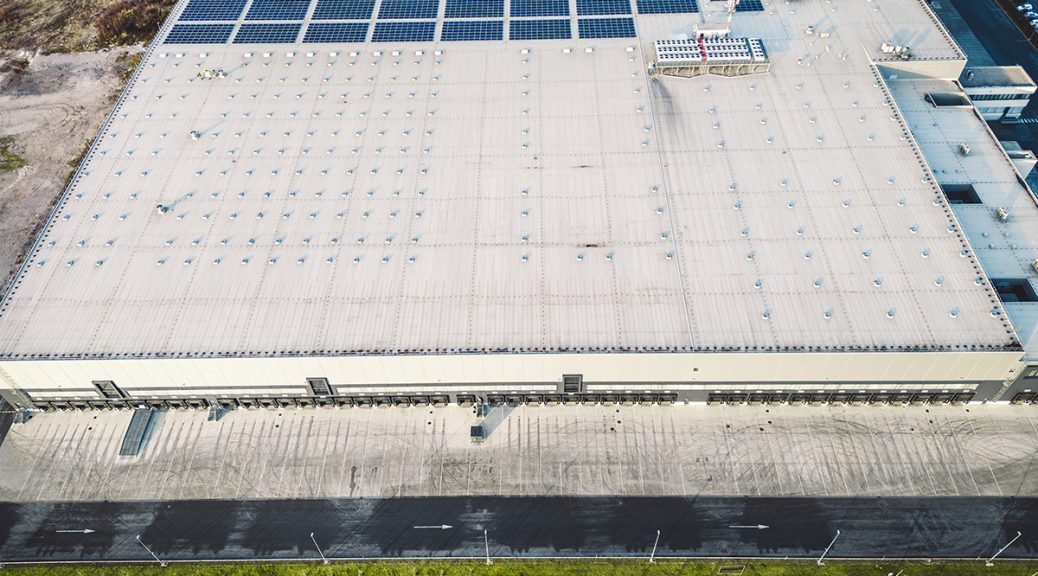Are you confident that your business has the best roof possible? Are you sure it will hold up through the next big storm? The next sudden drop in temperature? With a new roof made from the best commercial roof materials on the market, you can enjoy a business experience without those kinds of worries.
No two businesses are the same, which is why we have so many options to choose from for commercial roofing systems. Here in the Mid Atlantic, we know how quickly the weather can change for you. This unpredictable weather is why businesses here need roofing that can withstand the sudden changes between hot and cold, wet and dry. If you feel it’s time to upgrade to a new roof for your commercial property, come to Heidler Roofing and start the discussion with a fast and easy quote!
How to Choose the Right Commercial Roof Materials
When looking for a new roof for your commercial roofing, you should carefully consider your commercial property’s needs. From energy efficiency to foot traffic to the environment, you should think about what your commercial roof materials need to withstand throughout the many years of their lifetime.
How sloped is your roof? Low slope roofs (also known as “flat roofs”) are the most common form for commercial properties and can open up your options. Maintenance and installation can be more difficult if your roof is shaped a certain way. When choosing a commercial roofing system, you must note what each material provides and how it will meet your needs.
Built-Up Roofing
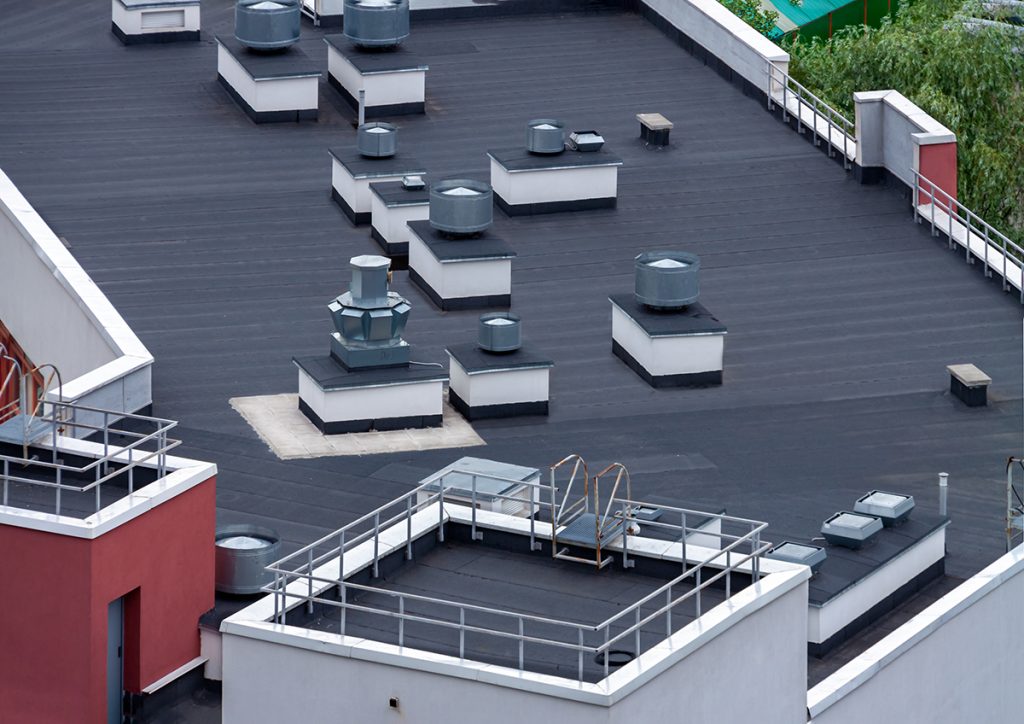
Built-up roofing, or BUR, is a standard type of commercial roofing that can be compared to asphalt shingles. These types of roofing are very durable thanks to the bitumen (asphalt) layers and reinforced fiberglass fabric. These form ‘plies’ that are typically layered over each other.
Multiple layers of BUR ply can be highly durable, especially when covered with a final layer of gravel that provides UV protection. While a single ply is often enough, multiple layers offer more security and a longer lifespan. Additionally, built-up roofs are more than capable of standing up to heavy foot traffic.
PVC Roofing
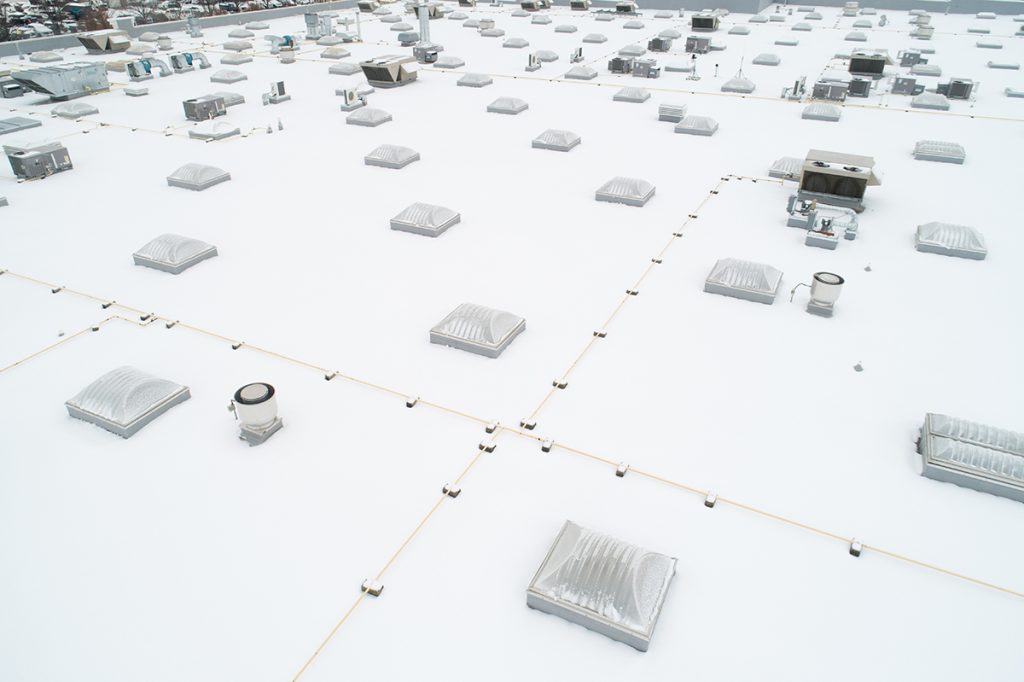
Poly Vinyl Chloride – PVC – is an incredibly versatile commercial roof material. Because this material is a synthetic resin, it is particularly resistant to bacteria, mold, and algae, which are all common concerns in roofing materials. PVC is strong enough to manage high foot traffic and other stresses. The durability and resistance are marked benefits of PVC.
An additional benefit for those who choose a PVC roof is the cost-effective installation, thanks to simpler methods requiring less labor. This system is usually installed in sheets, laid down, and set in place mechanically or with adhesive. PVC also benefits energy efficiency, thanks to the white finish that reflects UV rays.
TPO Roofing
Thermoplastic Polyolefin roofing is an excellent alternative to PVC, which has many of the same benefits. Both PVC and TPO are synthetic commercial roof materials that provide high durability for lower costs and simple installation. Both are single-ply membrane systems that reflect the sun’s rays.
TPO roofs are relatively new and have many different formulations, while PVC has been on the market for more than 50 years and is more established as a material. TPO sheets are also stiffer, making them more challenging to install. This property means more risk of roof leaks and damage to the underlying structure. If you have a simpler roof design and desire a lower-cost option, TPO is a good alternative to PVC.
EPDM Roofing
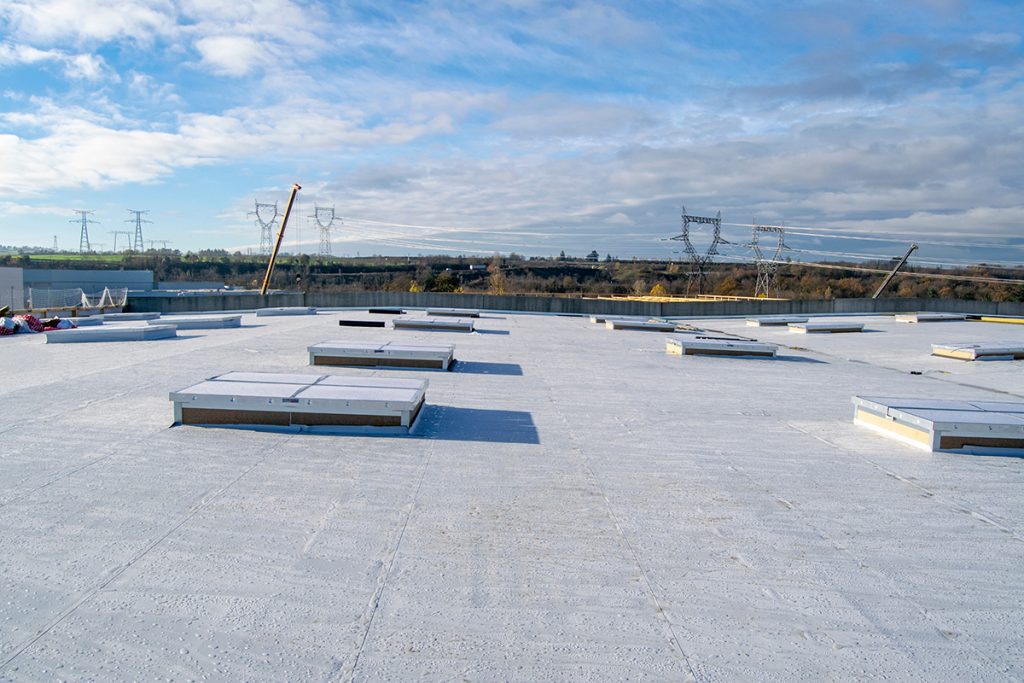
Ethylene propylene diene terpolymer – EPDM for much shorter – is an excellent option for the right roof and commercial building. EPDM rubber roofing is low-cost, long-lasting, and can be given a white finish as an energy-efficient option. However, there are some downsides.
Installation costs can be higher because an EPDM roofing membrane is more flexible, leading to punctures and tears if not correctly installed. Without reinforcement, EPDM roof coatings are subject to shrinkage and ‘bridging’ at the end of their life when they begin to tighten across the roofing substrate. In the hands of a good roofing contractor, EPDM roofing material is one of the strongest and longest-lasting—but only when handled well.
Modified Bitumen Roofing
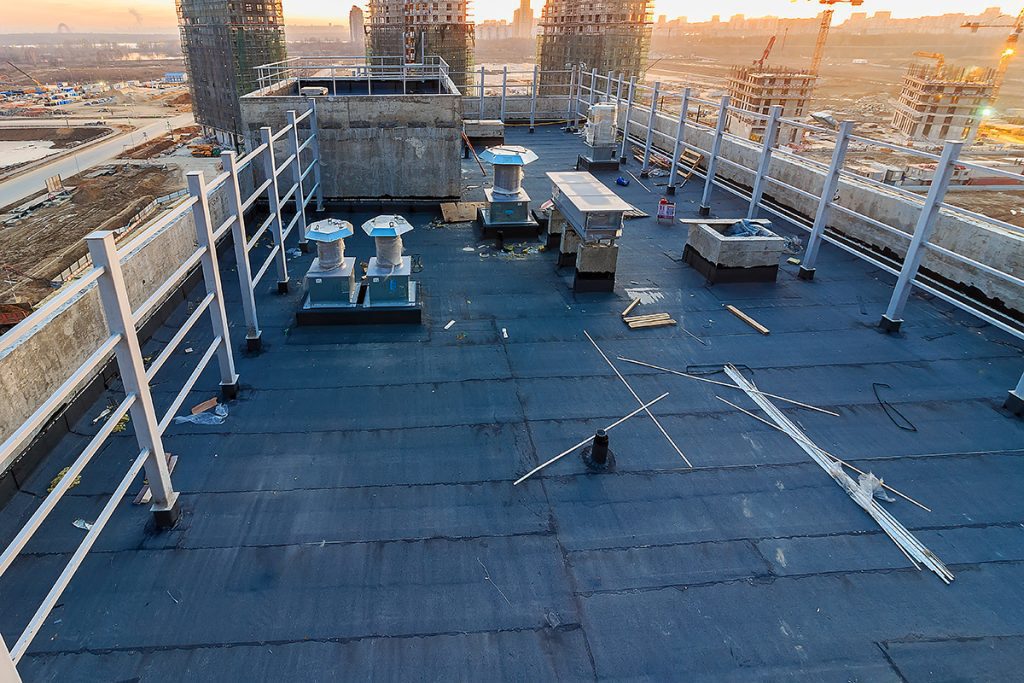
Modified bitumen is a close relative of BUR roofing. Both use asphalt as a binder and base for other materials, but where BUR uses layers of fiberglass, Mod Bit roofing systems use synthetic rubber or plastic addition. The mixture of roof materials provides a new construction with higher tensile strength, lower energy costs, and higher durability.
However, this material is not as long-lived as other roofing systems since there are more ‘moving parts,’ so to speak. These roofing systems absorb heat more readily, creating a warmer indoor environment. Lastly, the installation can involve heat-welded seams that create strong chemical odors and potentially harmful fumes.
Spray-On Roofing
This kind of roofing system is straightforward. Roofers spray polyurethane foam across the surface of your roof system. This layer of foam expands and hardens into a solid layer. This type is one of the most eco-friendly and straightforward styles of roof.
Spray-on roof systems provide insulation, thanks to the air pockets within the foam that heat can’t quickly transfer through. However, this roof needs to be installed during favorable weather without moisture, can be a bit more ‘temperamental,’ and requires at least one annual inspection. But when properly maintained, this is a desirable and unique option.
Heidler Roofing – Call Us.
You’ve been given a lot of information about commercial roof materials. If you feel a little overwhelmed, that’s understandable. Each roof system is unique and offers much to your commercial property. Durability, resilience, energy efficiency, and fire resistance are all significant factors to consider when you look for your roof.
Let us help you choose the best system for your needs. We at Heidler have over 65 years of experience installing roofs and providing regular maintenance to even the most sensitive systems. The roofing industry is full of advancements that can cause even more confusion. We can help guide you to the commercial roofing system of your dreams – Call us today and get started!


